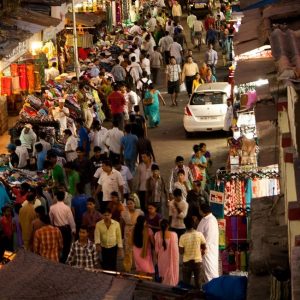Migration Paradox: Misrepresentation of Duration in Census Data


India is set to embark on a new chapter in its Polar exploration journey with the construction of Maitri II. The Indian government plans to establish a new research station near the existing Maitri ba...
.png )
The Deep Ocean Mission (DOM), approved by the Government of India in 2021 under the Ministry of Earth Sciences (MoES), represents a strategic step in realizing Sustainable Development Goal 14 (SDG 14:...

China recently announced restrictions on the export of seven rare earth elements (REEs), soon after US President Donald Trump decided to impose tariffs. As the world's dominant supplier—responsible fo...
<p>Online courses are an easy way to assure meaningful learning- only if you know what to learn and where from. We thus bring you a unique collection, designed by universities around the world to help...
The Smart City Mission, despite the support from various ministries is lacking in several goals including pro-poor approach in addressing several issues including access to basic amenities.
<p>India has been witness to an urban revolution in the past century. While mere 26 million people lived in cities in 1901, the numbers have increased to 377 million in 2011 (Census Commissioner, 2011...
<p>Online courses are an easy way to assure meaningful learning- only if you know what to learn and where from. We thus bring you a unique collection, designed by universities around the world to help you learn unconventionally. Rethinking Ageing: Are we prepared to live longer? Presented by: The University of Melbourne Total Duration: 5</p>

The Smart City Mission, despite the support from various ministries is lacking in several goals including pro-poor approach in addressing several issues including access to basic amenities.
